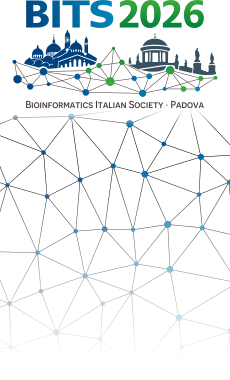September 8-11, 2014
Povo (Trento), Italy
The Centre for Integrative Biology of University of Trento, Italy,
(http://www.unitn.it/en/cibio) is organizing an international Summer School
titled "3S Biology" from the 8th to 11th of September 2014. The school aims at
introducing the recent advances in Systemic, Semantic, and Synthetic
approaches relevant to the field of biological research and computational
biology.
The school is open to young post-docs and young researchers who like to be
informed of the most recent advancements in these areas and to approach to
the computational aspects of modern systems, synthetic and semantic
biology.
Systems Biology
Systems biology is a discipline that aims at explaining the dynamic behavior
of complex biological systems like molecules, cells, organisms or entire
species. Systems biology rejects reductionist approaches and applies
experimental, theoretical, and modeling techniques to the study of biological
processes in a holistic perspective. This discipline makes use of mathematical
and computational models to represent and simulate the time evolution of
biological systems. One of the main goals of systems biology is to discover
yet-unknown properties at the intra-, inter-cellular, tissue, organism and
population level understanding the multiplicity of elementary interactions that
characterize the dynamic of biological processes.
Diverse theoretical approaches from different branches of mathematics,
physics and computer science are being used to achieve these goals, e.g.
probability theory, statistics, linear algebra, calculus, graph theory, topology,
abstract algebras, and coding theory. The master representation of a
biological system is often a graph (i.e. the network depicting the components
of a system as nodes and their interactions as arcs between nodes) as
consistent with the conceptualization of biological processes as networks (e.g.
gene network, metabolic networks, protein-protein network, signaling
network).
Theoretical holistic approaches are currently used also in synthetic biology in
the context of the study and the design of living systems at the micro- and
meso-scale.
Synthetic Biology
The construction of living systems that could not have arisen without direct
human intervention has come to be known as synthetic biology. This exciting
field combines engineering and molecular biology to build organisms to carry
out desired tasks and to deepen our understanding of the basis of life. To
achieve such goals, a variety of approaches have been developed. For
example, much effort is expended in standardizing biological parts so that
complex genetic circuitry can be built with less trial and error. In a similar vein,
living organisms are reduced in complexity to generate simpler chassis upon
which new genetically encoded functions can be inserted with less fear of
complications arising from crosstalk. From here, many interesting behaviors
have been engineered, including coordinated cellular activity across
populations, cell based computation, logic gates, seek and destroy cellular
activity, among others. Synthetic biology is a quite creative discipline where
building something new, as opposed to describing things that already exist, is
the norm. Perhaps for this reason, synthetic biology groups typically consist
of people with a wide range of backgrounds, including artists, engineers,
sociologists, chemists, philosophers, and biologists.
Semantic biology is a discipline that seeks to structure the information
provided by the scientific literature together with the data generated by
experimental omics approaches. Semantic biology develops techniques to
formalize this knowledge across multiple domains of biology and medicine to
facilitate the formulation and validation of hypotheses and new knowledge. An
effective use of multiple sources of data (e.g. protein structures and
sequences, expression patterns, genetic, metabolic and signaling networks)
is the core of the integrative approaches both to wet biological research and
to computational biology. Biological data experimental sources developed by
different academic and industrial groups differ with respect to the assumptions
concerning the properties of the biological system components, the
relationships among them, and the level of abstraction at which these
components and their properties are described. As a consequence, semantic
differences among data sources are unavoidable and need to be reconciled
to solve the problem of data integration. Ontologies, semantic objects,
semantic data models, graphs, typed relationships, contexts, semantic web
technologies are used by semantic biology to integrate multiple data sources
and to represent complex systems.
The use of semantic concepts and technologies is increasingly widespread
both in systems and in synthetic biology. The convergence of semantic biology
and systems biology originates semantic systems biology that is a systems-
level approach that uses semantic description of biological information to
pursue integrated data analysis. Semantic methods are being used also to
address challenges in synthetic biology concerning semantic mining and
management of information.
Location: Centre for Integrative Biology of University of Trento, via
Sommarive 5, 38123 Povo/Trento, Italy (http://www.unitn.it/en/cibio).
Application
All applicants have to send to 3SBiology2014@unitn.it
mandatory, a motivation letter (one page, in doc format) reporting the
main motivations for attending the school;
optionally, a short abstract (one page, in doc format) reporting your
recent research results in systems, or synthetic, or sematic biology.
Submitted abstracts will be reviewed and selected for a short oral presentation
or for a poster presentation.
See more details at http://events.unitn.it/en/3sbiology
Important dates
June 15th, 2014: Abstract submission deadline
June 31st, 2014: Notification about abstract
July 31st , 2014: Registration deadline
Invited speakers
Olivier Elemento, Cornell University, US.
Jeroen Raes, VIB, Belgium.
Alfonso Jaramillo, Institute of Systems and Synthetic Biology, France.
Jean-Loop Faulon, Institute of Systems and Synthetic Biology, France.
Andrea Splendiani, intelliLeaf ltd, UK.
Vladimir Mironov, Dept. of Biology of Norwegian University, NTNU Trondheim.
Tutorial contributors
Pablo Carbonell, Insittute of Systems and Synthetic Biology, Genopole,
France.
Erick Antezana, Department of Biology, Norwegian University of Science and
Technology.
Karoline Faust, VIB, Belgium.
Organizers: Francesca Demichelis, Paola Lecca, Sheref Mansy, Alessandro
Quattrone, Angela Re, Nicola Segata of CIBIO, and Ufficio Comunicazioni,
University of Trento, Italy
Contacts
For scientific matters
Paola Lecca
Centro di Biologia Integrata CIBIO
phone: +39 0461 282963
3SBiology2014@unitn.it
For organizing matters
Communication and Events Service
University of Trento
phone: +39 0461 281545
E-mail:comunicazione-collina@unitn.it




